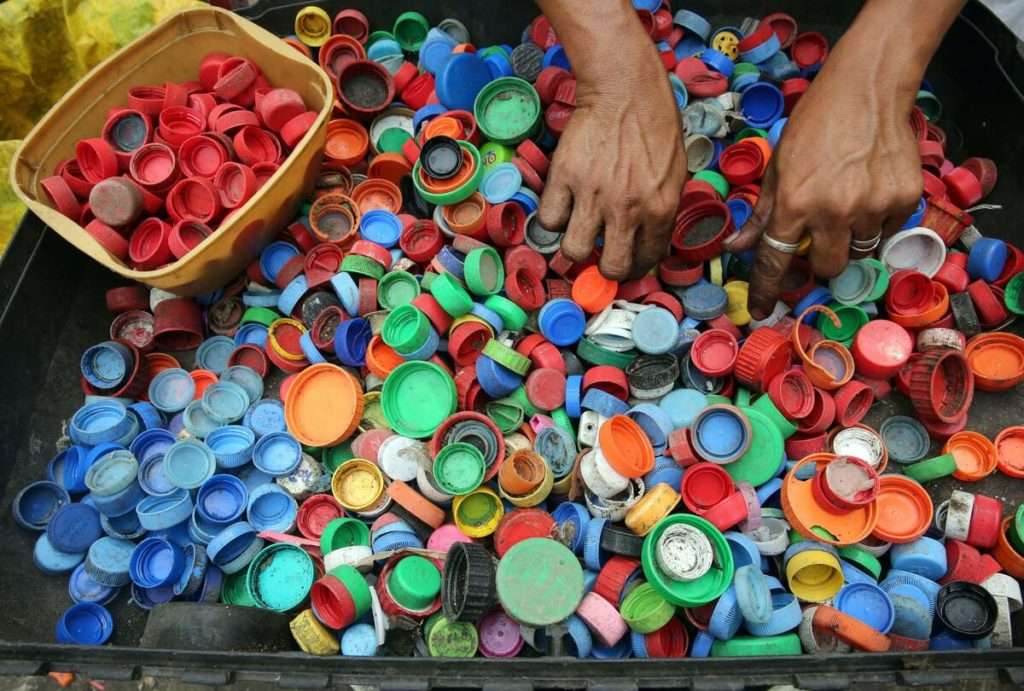If you are someone who loves to redesign discarded stuff, recycling is a great way to save/make money and protect the environment, all while doing something you love. There is a lot of waste in Nigeria and this makes waste recycling a good business idea for many people. In this article, we are going to look at how to start a waste recycling business in Nigeria
Table of Contents
What is Recycling?
Recycling means that you are transforming materials that were once used and discarded into new and reusable products.
For example:
- Paper can be recycled into new prints or used in manufacturing products such as cardboard boxes or packaging material.
- Electronics like computers and television sets can be refurbished, repaired and reused instead of being thrown away after their useful life has ended.
Recycling reduces the amount of waste that goes to landfills, incinerators and oceans.
How Lucrative is Recycling Business in Nigeria
Recycling business is very lucrative, you can become an instant millionaire if you follow the right steps. But just like every other business, recycling business can fold up in the shortest possible time if you begin without having adequate information.
That is while we put together this article to give you a good insight into things to consider before starting a recycling business in Nigeria.
Things to Consider Before Starting a Recycling Business in Nigeria
Nigeria is a country that has a lot of waste, but it’s also one of the most populous in Africa. This means there’s a lot of potential for recycling businesses to thrive in Nigeria—but there are also some major factors to be considered before you can start your own.
Step 1: Conduct market research and feasibility studies
The first step is to do market research and know which waste materials are in higher demand. You need to know where you will supply the waste to, transportation cost and your profit at the end of every shipment. This will guide you to decide on what you need to start the recycling business.
Step 2: Decide on what to recycle/compost
This is the part where you decide the type of recycling business to specialize in. You should consider your startup capital, availability of suppliers, availability of a market(customers) in your location of choice, etc.
If you are conflicted on which to decide due to the high number of recyclable material, it is advisable to begin with paper and move up later on to other waste like electronics, green waste, nylons, bottles, plastic, among others.
Step 4: Decide on packing and storage
Once you’ve collected enough recyclable materials, you’ll need to transport them somewhere where they can be sorted out into their individual pieces before being processed further into new ones. You will need a storage facility, which is where you keep the waste from collecting until it’s sold.
You also need to settle on your packaging material(e.g., labels) so customers know exactly what they’re getting before buying it.
Finally, you’ll need a way to get your recycled goods from one place to another so that they can be sold.
Step 5: Create a business plan
To run a successful recycling business in Nigeria you need to have a well detailed business plan. A business plan will guide you on how to run your business, it can help you in engaging with funders and also inspires you when you run into difficulties.
Step 6: Funding
This is an essential aspect of starting a recycling business in Nigeria and it is important that it comes after creating your business plan because you’ll need the business plan to attract and retain investors/sponsors.
As much as recycling business is very lucrative with as high as 60% ROI if managed properly, it is also capital intensive. N2-3 million is a good start-up capital. This amount may be sufficient if you’re just starting out or want a small side hustle. However, if your goal is bigger and more ambitious, then it’s best to start small with a smaller budget and scale up as you grow.
Step 7: Formalize your recycling business with the appropriate authorities
Considering that this business is a bit of an environmental one, there are certain permits and licenses you’ll need to obtain to operate freely. These permits would help you avoid the hassle of dealing constantly with law enforcement agents which can hinder production.
Step 8: Get the necessary equipment
Recycling machines are expensive, investing in quality equipment will ensure better results from each batch and little to no excuses for hampered production. Not to worry if you’re on a lean budget as there is the option of equipment leasing.
Just make sure that whatever machine(s) you lease have been inspected beforehand by professionals who know what they’re doing so there won’t be any issues later on when trying out the machines. You’ll also need materials like huge bins, weighing scales and some office equipment.
Note that no one machine can process different waste at the same time so starting with one and upgrading with time is the best option.
Step 9: Know your market
Identify the people who will be supplying their waste to you. They might be small businesses or households that are looking to dispose their waste.
You can start by collecting plastic bottles and paper products from those in your neighborhood. The best way to get started is by going door-to-door and asking them if they have any plastic bottles lying around their homes that could be recycled into new products such as baggies or cups!
You could also look at industrial sites that you can collect from regularly or those who will dump their own waste at your site. If you can get your hands on another business’s scrap materials, this can also help offset your costs and allow for a higher profit margin.
The best way to acquire these materials is by offering some sort of free service or product. You could also offer discounts on future purchases as well!
Once you’ve identified a supply market, the next step is finding the demand market—people who need those products and how much they’re willing to pay for them. Do this by going door-to-door or making phone calls until someone says yes.
Step 10: Market your business
After knowing your market, the next step is to locate them and begin marketing to them. You can advertise through newspapers ads, websites, etc. You can also leverage the use of social media for your business visibility and marketing as digital marketing is the mainstay of any business growth.
Final Thoughts on How to Start a recycling business in Nigeria
Recycling is a great way to handle waste and is very profitable if done right; it requires a good deal of research, planning and preparation before they’re set up so that they’ll be able to handle large amounts of material each day without any glitches arising from lack of resources or infrastructure.
Starting a recycling business in Nigeria is not as hard as it sounds, all you have to do is follow the necessary steps and you’ll be up and running in no time.

